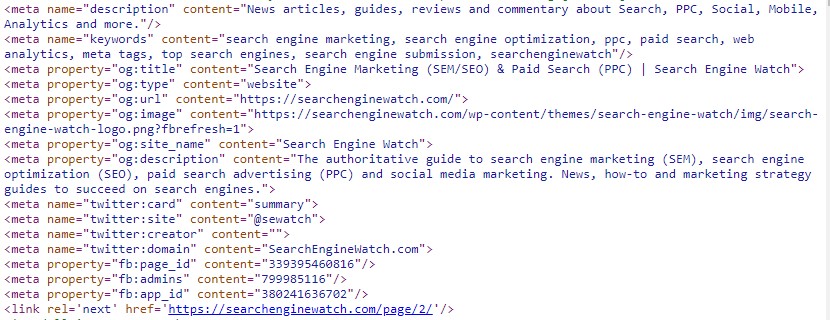
Whether you work in an agency or in-house, SEO success has a lot to do with influencing other functions, for example, web development, site merchandising, content marketing, PR, etc. As SEO professionals, we do have our own secret sauce to cook with: meta tags.
Although meta tags are only used for search engines, they are still an essential part of Google’s core algorithm[1] and must not be ignored. We will go through the most common meta tags and highlight their usefulness so you can easily check if you’re spending enough time where it counts.
Meta tags defined
Meta tags, or HTML elements, are codes of text that help search engines and website visitors better understand the content found on a website page. Meta tags are not the actual content that is featured on the page.
The purpose of meta tags is instead to describe the content. Therefore, these HTML elements are found in the <head> section of the HTML page, not within the <body> section. Since meta tags need to be written in the HTML code, you may or may not be the one implementing the tags, but knowing what’s most essential will set you up for success.
Why is it still important?
We know that SEO is evolving and the importance of keywords has changed[2], but let’s keep in mind the impact of the actual query that is being searched for. A search query is formulated in words, and search engine users are essentially scanning the SERPs for the words they entered into the search bar.
Search engines understand that their users are expecting to see results containing the exact words they entered. Let’s say I’m thinking of starting


